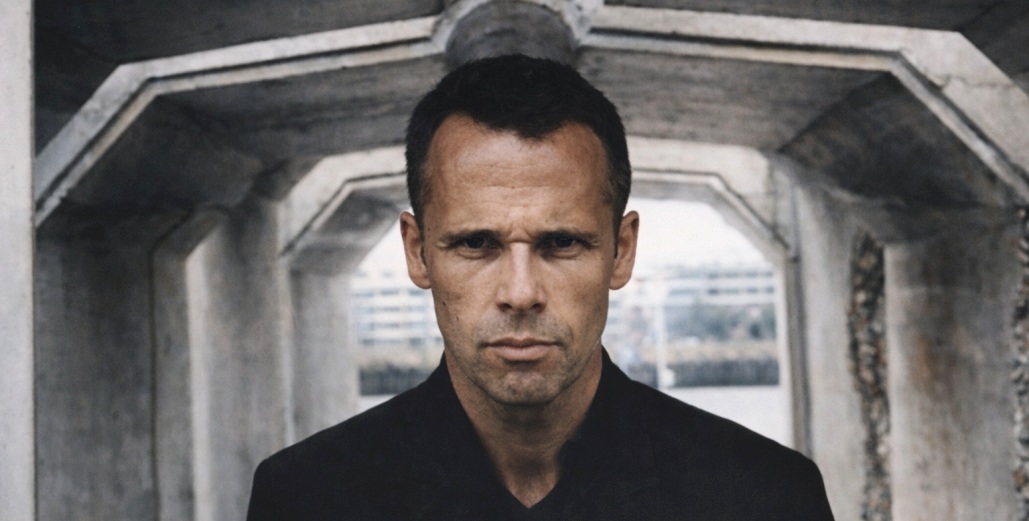CATHAL COUGHLAN: A LIFE

Cathal Coughlan, who passed away in May 2022 at the age of 61, was one of Ireland’s most fiercely intelligent, passionate and uncompromising musical voices. Across a four-decade career, he gained a sort of cult renown as a lyricist and vocalist, first with the acclaimed eighties duo Microdisney, then with the incendiary Fatima Mansions, and later through a series of solo and collaborative projects. Cathal left behind an impressive body of work: 11 band albums, six solo, two as one-half of Telefís and appearances on many other albums.
The Early Days
Born in Glounthaune, a village near Cork, in 1960, Cathal grew up surrounded by traditional Irish culture but was soon drawn to the edgier tones of post-punk and New Wave music. Cathal’s early influences included Scott Walker, Van Morrison and David Bowie as well as various folk and country acts. But from the earliest it was evident that Cathal was no mere parrot. Growing up at the time he did, in the country he did, it’s little wonder his music was steeped in ideas and issues like national identity, authoritarianism, religious hypocrisy and class struggle.
Cathal first came to wider attention as part of Microdisney, which he co-founded with Sean O’Hagan (he of later High Llamas fame) in the early eighties. The duo’s music was a wonderful but strange fusion: lush, melodic music mixed with acerbic, politically charged lyrics that bit down to the marrow. Albums such as The Clock Comes Down The Stairs (1985) and Crooked Mile (1987) were critically acclaimed for their balance of beauty and bitterness. Cathal’s baritone voice, delivering acidic critiques of Thatcher-era politics and Irish conservatism, came at you on a platter of the freshest and most fragrant roses.
A Fury Unleashed
By the late 1980s, tensions within Microdisney led to a split, and Cathal soon launched the Fatima Mansions, a far more aggressive and confrontational project both musically and lyrically than Microdisney.
Named after a Dublin housing complex, Fatima Mansions was Cathal’s vehicle for venting spleen on the wider world. His words and ideas, never hotter, never more menacing, were wrapped in heavy industrial beats and barbed guitar noise. It was feeding time at the zoo and it was unlike anything else going at the time.
Albums like Viva Dead Ponies (1990), Bertie’s Brochures (1991) and Lost in the Former West (1994) revealed Cathal as a master of irony, iconoclasm and narrative voice. His songs tackled fascism, consumer culture and Irish nationalism with brutal honesty no one else — not Elvis Costello, no one — could hope to match.
Cathal’s compositions were scathing, at times absurd, but never glib. There were no false walls or cutout buildings. Cathal and the Mansions were the real fucking deal. The group would go on to enjoy more commercial success in Europe than Microdisney ever had. While he remained well outside the mainstream, it was a status Cathal, ever the perverse loner, actually seemed to prefer.
Live, he could be mesmerizing. But he was unpredictable. He seemed to relish obliterating the crowd’s expectations, directly confronting clubgoers with weird monologues and hideous home truths. Cathal pushed boundaries, both artistic and political, and paid a massive price for it. By the mid-nineties the Fatima Mansions had come crashing to the end of the line.
Solo Career and Collabs
Rather than chasing relevance or easy nostalgia, Cathal spent the next two decades crafting a quieter though no less powerful persona through a series of dark projects. Albums such as Black River Falls (2000), The Sky’s Awful Blue (2002) and Foburg (2006) showcased Cathal’s introspective side. The white-hot fury of his earlier work was still there but it was tempered now by reflection and a more literary sensibility. His music became less chaotic, more experimental and personal.
Even in the later stages of his career, when many artists begin taking it easy or resting on past laurels, Cathal was a creator. He collaborated with artists such as Luke Haines (The Auteurs) and writer Andrew Mueller in The North Sea Scrolls, a satirical alternate history of Britain. Cathal also appeared on albums and live shows in France with the late Francois Ribac and Eva Schwabe.
Cathal participated in an all too brief run of Microdisney reunion shows in 2018 and 2019 with his old musical partner Sean O’Hagan. These gigs were a celebration of the band’s legacy and its enduring relevance.
In 2021, just a year before his death, Cathal released Song of Co-Aklan, his first solo album in over a decade. The album was widely praised by both critics and fans as a late-career triumph. This served as a powerful reminder of Cathal’s undiminished powers. His two final albums, A Haon and a Dó (both released in 2022), were the result of a collaboration with music producer Jacknife Lee. The albums were a reinvention of Cathal’s musical self. One is left to wonder exactly what musical roads he would have gone down had he lived.
Legacy and Impact
Cathal never achieved mainstream fame, though it’s not something he ever really pursued. Yet his musical influence runs very deep. He was in many ways a musician’s musician — a revered figure among peers and critics alike. While one could compare Cathal to Costello or Morrissey, Cathal was really one of a kind.
Cathal’s untimely death after a long illness was met with an outpouring of grief from fans, fellow musicians and journalists. Many have said that his voice was and remains irreplaceable. At a time when safe, algorithm-driven music dominates, the loss of someone as fearless and original as Cathal felt (and still feels) especially acute.
